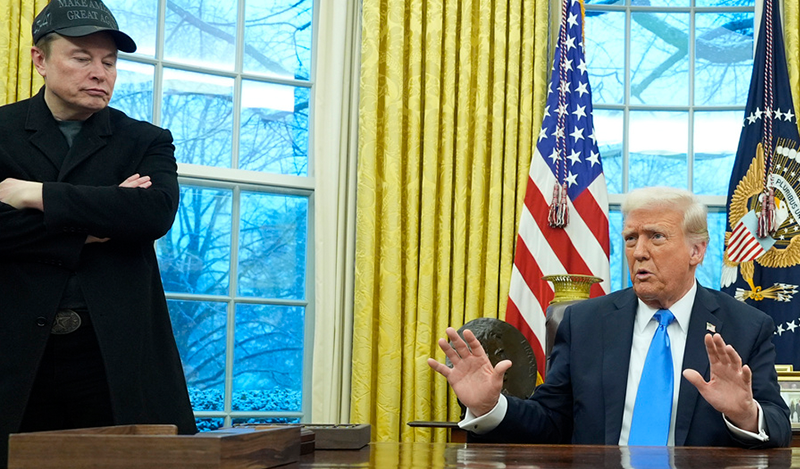
June 9, 2025
A Note on Roger Pielke Jr. and Extreme Greenhouse Gas Scenarios
My AEI colleague Roger Pielke Jr. posted some useful observations recently on the politicized use of extreme greenhouse gas (GHG) scenarios for purposes of the usual climate scaremongering and support of policies that I would describe as ideological opposition to fossil fuels. Roger takes particular aim at an extreme scenario called “Representative Concentration Pathway 8.5,” which Roger…

June 4, 2025
Expect an AI Shock to Change the Job Market, Not Destroy It
In a Wall Street Journal op-ed, “The Real Story of the ‘China Shock‘,” economists James J. Heckman (a Nobel laureate at the University of Chicago) and Hanming Fang (University of Pennsylvania) argue that the turn-of-the-century trade disruption primarily shifted jobs from one region to another rather than eliminating them nationwide. Moreover, they contend that Chinese…

May 30, 2025
A Bitter Pill to Swallow: American Drug Shortages
While drug pricing has been a consistent focus for policymakers concerned about access to medicine, another significant barrier to care has grown: drug shortages. Drug shortages have become more prevalent, with causes ranging from problems at manufacturing facilities, compliance with regulation to unpredictable demand. An insufficiently profitable market, particularly for complex generic medicines, discourages investment…

May 7, 2025
Human Ambition and Natural Beauty Meet in the City
A couple of weeks ago, the climate writer Robinson Meyer posted something that’s been on my mind. It gets at something fundamental about the infrastructure of American cities. This is a trite observation but so much of America is so much nicer than it was 10 or 15 years ago. Everyone knows the food is better, but…

April 28, 2025
A World with Smart AI but Not Human-Level AI
How long, if ever, before we achieve artificial intelligence that can pretty much do everything that a human worker can do currently? My short-hand way of gauging the speculative timeline relies, at least partially, on prediction markets. And the most recent message from them suggests tempering expectations, at least a bit. For example: The current…

April 23, 2025
What Would a US Tariff on Chips Look Like?
The US government will be “taking a look at Semiconductors and the WHOLE ELECTRONICS SUPPLY CHAIN”, President Donald Trump recently declared. Given his repeated promises to impose a tariff on imported chips, we must assume some action is coming. But what type, and to what end? According to trade data, the US imports around $30bn…

April 21, 2025
Silicon Valley’s Consumer Eugenics
The orchid was once an expensive, highly cultivated symbol of refinement; now, cheaper cultivars can be found in almost any grocery store. Perhaps that makes it a fitting image for a new fertility company, Orchid Health, that seeks to encourage parents to breed better children. Orchid Health is one of several Silicon Valley start-ups that…

April 21, 2025
The Nuclear Race to Power the AI Economy
America’s nuclear paradox: Yesterday’s reactors are being resurrected to power the future. For example: At Palisades, Michigan, engineers rush to repair steam generators before an October 2025 restart, while at Three Mile Island—where a 1979 meltdown once buried the country’s postwar nuclear ambitions—Microsoft has committed billions for carbon-free electricity to feed its voracious artificial-intelligence operations….

April 15, 2025
Making DOGE Constitutional
The “Department of Government Efficiency” (DOGE) has been hard to pin down. In the wake of last year’s election, Elon Musk and his erstwhile partner, Vivek Ramaswamy, gestured toward some of the effort’s contradictory impulses in a Wall Street Journal op-ed. “We will serve as outside volunteers, not federal officials or employees,” they insisted. But “unlike government…

April 14, 2025
The Strange New Politics of Science
Amid the familiar lines of political division in America—immigration, abortion, taxes, regulation, and the like—a new divide has emerged over trust in science. Concerns about the politicization of science and the “scientization” of politics can be traced back decades. But more recent trends indicate that we are entering a new era in the politics of science,…